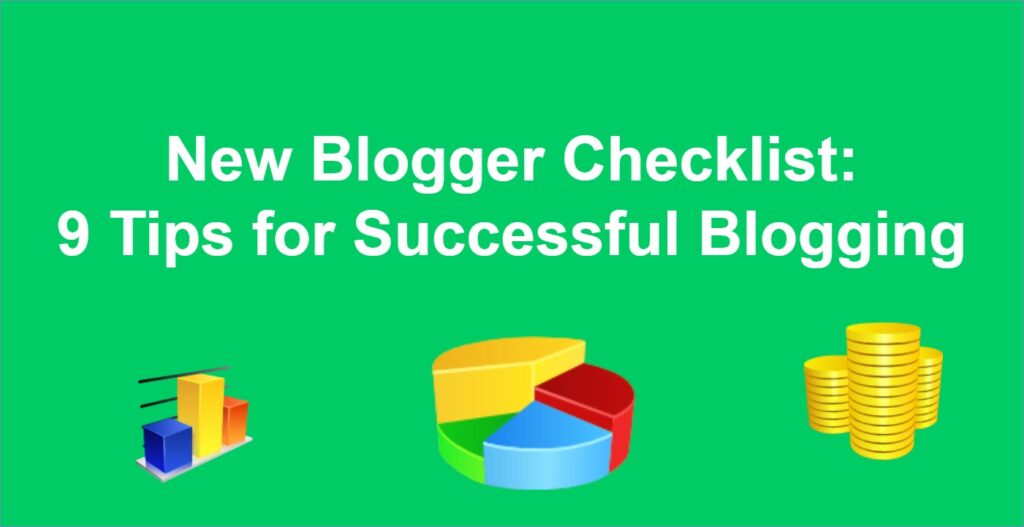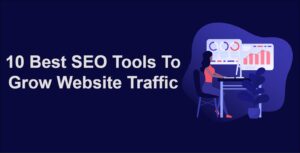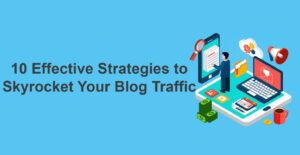Launching your blog can be an exhilarating and fulfilling journey. With this New Blogger Checklist in hand, you have the roadmap to confidently navigate the world of blogging. Stay authentic, keep honing your writing skills, and embrace the learning process.
The New Blogger Checklist is a comprehensive guide for individuals venturing into the blogging world. It acts as a roadmap to ensure new bloggers cover essential tasks to establish a strong foundation for their blog’s success.
This checklist assists beginners in organizing their efforts and avoiding common pitfalls.
The checklist covers critical steps such as selecting a niche that aligns with their interests and expertise, conducting thorough keyword research to identify relevant topics, and setting up a user-friendly and visually appealing blog design.
It also emphasizes the importance of creating high-quality, engaging content that resonates with the target audience.
Tips for Successful Blogging
Starting a blog can be an incredibly rewarding experience, and with the right guidance, you’ll be well on your way to creating a successful blog that captivates your audience.
Whether you’re passionate about sharing your thoughts, showcasing your expertise, or turning your hobby into a full-fledged career, this step-by-step guide will walk you through the new blogger checklist to ensure your blogging journey is off to a flying start.
New Blogger Checklist
1. Why Start a Blog?
First things first, why should you start a blog in the first place? Well, there are plenty of reasons! Blogging allows you to express yourself, share your passions, and connect with like-minded individuals. It’s a fantastic way to build your personal brand, establish yourself as an authority in your niche, and even earn some extra income down the road. So, let your creativity flow and embark on this exciting blogging adventure!
1. Select a blog niche
Selecting the right blog niche is a crucial decision. It can impact the success and direction of your blog.
A well-chosen niche resonates deeply with a specific target audience. When your content addresses their interests and concerns, it fosters higher engagement and cultivates a loyal readership.
When you specialize in a distinct niche, standing amidst the vast blogging landscape is easier. Your unique perspective and tailored content set you apart and capture the attention of both readers and potential collaborators.
A detailed guide to selecting a blog niche
Self-Reflection and Passion:
Start by considering your interests, hobbies, and areas of expertise. List down topics you’re passionate about and knowledgeable in. Your enthusiasm for the niche will keep you motivated to consistently create content.
Market Research:
Once you’ve identified potential niches, conduct thorough research using keyword research tools like Google Keyword Planner, SEMrush, or Ahrefs. Look for niches with a decent search volume and manageable competition.
Audience Identification:
Define your target audience. Who are you writing for? Understand their demographics, preferences, problems, and interests. Your chosen niche should align with their needs.
Competition Analysis:
Research other bloggers and websites in the niches you’re considering. Analyze their content quality, engagement, and audience size. Consider both direct and indirect competitors.
Monetization Potential:
Explore potential monetization options within your chosen niche. Can you offer products and services or partner with affiliates? A niche with various monetization avenues will ensure your blog’s sustainability.
Passion and Long-Term Commitment:
Assess your genuine interest and commitment to the niche. Blogging requires consistency and dedication. Your passion will reflect in your content and keep your readers engaged.
Addionally:
Find Your Unique Angle:
When considering a niche, consider how to bring a unique perspective or angle to it. Differentiate yourself from existing bloggers by offering a fresh take or specialization.
2. Set Blogging Goals and Objectives
Before you jump headfirst into blogging, take a moment to define your goals and objectives.
Ask yourself:
What do you want to achieve with your blog?
Are you looking to educate and inspire others?
Maybe you want to entertain and bring joy to your readers? Or perhaps you have ambitions of turning your blog into a side hustle or even a full-time career. Whatever your goals may be, writing them down and keeping them in mind will serve as a compass to guide you on your blogging journey.
3. Choose the Right Blogging Platform
Selecting the right blogging platform is crucial for a smooth and enjoyable blogging experience. Popular platforms like WordPress, Blogger, and Wix offer various features and customization options. Consider your technical expertise and the level of control you desire before making your choice.
Select the Best Platform for Your Needs
Research Available Platforms:
Explore various blogging platforms, such as WordPress, Blogger, Wix, and Squarespace. Each platform has its strengths and weaknesses, so research their features, user reviews, and capabilities to determine which aligns best with your goals.
Compare Features:
Compare the features offered by each platform. Look for essential features like customization options, templates, plugins, SEO tools, and responsive design. Consider your technical skills and whether you’ll need advanced features in the future.
Let’s break down the selection process.
If you want a user-friendly platform with lots of customization options, WordPress might be your best bet.
On the other hand, Blogger is super beginner-friendly and great for simple blogs. Wix is an all-in-one solution with easy drag-and-drop features. So, consider your preferences and choose the platform that suits you best.
4. Register Your Domain Name
Your domain name is your blog’s online identity, so choose a memorable and relevant one. Once you’ve decided on the perfect domain, register it with a reputable domain registrar. Make sure to check its availability and secure it promptly.
Follow these steps to Register Your Domain name:
- Choose a Domain Name: Select a unique and relevant name that reflects your brand, business, or website’s purpose.
- Check Domain Availability: Use domain registration websites to see if your desired domain name is available for registration.
- Choose a Domain Registrar: Select a reputable domain registrar like GoDaddy, Namecheap, or Google Domains to purchase and manage your domain.
- Choose Domain Extension: Decide on the domain extension (TLD) that suits your website’s purpose, such as .com, .net, .org, or others.
- Provide Contact Information: Enter accurate contact details for the domain registration, including your name, email, address, and phone number.
- Select Registration Period: Choose the duration you want to register the domain name (usually 1 year, but it can be longer).
- Privacy Protection (Optional): Consider adding privacy protection to hide your personal contact information from the public WHOIS database.
- Add Domain to Cart: Review your order and add the domain name.
- Checkout: Provide payment information and complete the checkout process.
- Configure DNS Settings: Configure Domain Name System (DNS) settings to point the domain to your website hosting provider after registration.
- Verify Ownership: Check your email for a confirmation link or code to verify your domain ownership.
- Complete Registration: Your domain name will be registered and active once verified. Make sure to renew it before it expires.
5. Identify Your Target Audience
Define Your Audience:
Start by identifying your target audience. Who are you writing for? What are their interests, needs, and preferences? Understanding your audience will guide your content creation process and help you tailor your posts to resonate with them.
Keyword Research:
Conduct thorough keyword research to discover what topics and keywords are relevant to your niche. Use tools like Google Keyword Planner, SEMrush, or Ahrefs to identify high-ranking keywords that can attract organic traffic to your blog. Incorporate these keywords naturally into your content.
Content Calendar and Plan:
Create a content calendar that outlines what topics you’ll cover and when you’ll publish each post. Having a structured plan will help you stay consistent and organized. Decide on the format of your content, whether it’s blog posts, videos, infographics, or podcasts. Plan a mix of evergreen and timely content to keep your blog fresh and relevant.
7. Optimize On-Page SEO Elements
On-page SEO refers to the little tweaks you can make within your blog posts to improve your search engine visibility. Use relevant headings (H2 and H3 tags!), meta descriptions, and alt text for images. These little SEO hacks can have a big impact on your blog’s performance.
8. Promote Your Blog
Optimize for Search Engines (SEO)
Enhance your blog’s visibility on search engines by implementing SEO best practices.
Conduct keyword research to target relevant search terms, use headings and meta tags effectively, and optimize your images with alt text.
Promote Your Blog on Social Media
Leverage the power of social media to reach a wider audience. Create engaging posts, share your blog content, and interact with your followers. Utilize platforms like Facebook, Twitter, Instagram, Pinterest, and LinkedIn to connect with potential readers.
Build an Engaged Email List
Start building an email list from day one. Offer a valuable incentive, such as a free eBook or a newsletter, to encourage readers to subscribe. Your email list is a direct line of communication with your audience, allowing you to share updates, promotions, and exclusive content.
Network with Other Bloggers
Networking with fellow bloggers can open doors to collaborations, guest posting opportunities, and valuable insights. Engage with the blogging community by leaving thoughtful comments on other blogs and attending blogging events.





